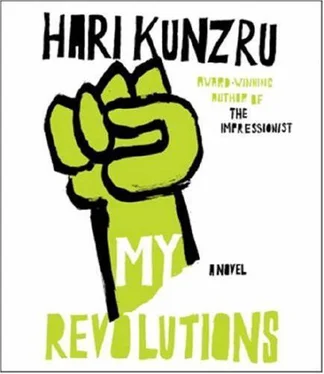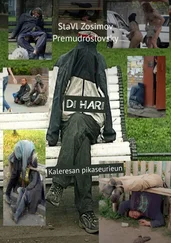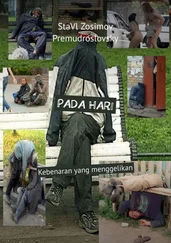Round and round. The rhythm of wheels on a track. With about twenty hours of solitude a day, I had plenty of time to think in prison. If Pentonville was a factory, what would it make? If it was a machine, what was it designed to do? I spent hours running through my memories. I thought about when I’d been happy and unhappy, the times when I’d been closest to feeling there was a future. The more I thought, the clearer the moral landscape appeared. There seemed to be two worlds. One was basic and sensual, a human-scale place of small tasks and pleasures, building things and eating good food, lying in the sun, making love. In this world, human relations were very simple. The desire to dominate,
to own and to control, just didn’t arise. The other world, the world of Law and War and Institutions, was a strange and abstract place. In this mirror-world I was a violent person and had to be punished because violence was a monopoly of the state. I’d somehow authorized the British government to distribute violence on my behalf, which it did through various branches of officialdom — the army, the police, the Pentonville screws. The problem was that I couldn’t remember giving my consent. What paper had I signed? Where had I said I wished to regulate my habits and govern my sexual behavior and strive for advancement in various abstract games whose terms had been set before I was born? The state claimed it was an expression of the democratic will of the people. But what if it wasn’t? What if it was just a parasite, a vampire sustaining itself on our collective life, on my life in particular?
* * *
I was released in the last week of April 1968. No one was there to meet me. I was relieved not to see Dad or Brian, whose single visit had been as bad as anything else that had happened to me in prison, but I’d hoped some of my Vietnam Action Group friends would be at the gate. So much, I thought, for solidarity. But I’d had a short letter from Alan in Muswell Hill, saying he was storing my stuff and I should go over there when I got out, so that was where I headed.
I bought a paper from a newsstand and read it as I waited for the bus. I found it hard to concentrate on the news. It felt too good to be wearing my own clothes, my own shoes, standing on the Caledonian Road looking at rows of houses blackened with grime from the railway yards. Beautiful pigeons, beautiful old man in his vest, smoking a cigarette and watching the beautiful street from an upstairs window.
Back at the Muswell Hill house Alan shook my hand and asked how I was. I didn’t know what to say, so I told him I was OK. We drank tea, standing in the overgrown garden, where one of his housemates was storing a partially dismantled scooter. I expected Alan to be curious about prison, but he didn’t ask any questions at all. He seemed fidgety and distracted. “They’ve suspended you,” he told me. If I wanted to continue at university I’d have to begin my second year again in the autumn. I asked him what was being done. Were any of the activist groups at the LSE going to support me? He looked uncomfortable and wouldn’t meet my eye. “The thing is, you were convicted of a crime. That doesn’t make it very easy, politically.”
I took in this unwelcome information as he told me his news, which consisted of gossip about various LSE factions, who’d slept
with whose girlfriend, who’d taken what line on the Powellite dockers’ march. As he chattered, I realized he hadn’t the slightest conception of what had happened to me. As soon as I’d disappeared into the police van, he’d more or less forgotten my existence. The last straw was his announcement that he’d “something rather delicate to discuss.” His housemates had told him they’d rather I didn’t stay there. They were worried about police attention, didn’t want to jeopardize their degrees. He was sorry. Naturally he’d argued, but it was a democratic household. He’d been outvoted.
I couldn’t believe my ears. My so-called comrades were washing their hands of me, self-proclaimed revolutionaries so timid that at the first sign of trouble they were running away. Without raising my voice I told Alan he was a coward, a middle-class fraud. He’d been with me on that demo: it could have been him who’d gotten arrested. I’d just spent a month in jail, I had about ten bob in my pocket and he wasn’t even going to let me kip on his couch? He mumbled something about there being hash in the house. But did I need money? My lip curled. Money, of course. The bourgeois solution. I extended my hand. He couldn’t get his wallet out fast enough.
I took the bus into town and went to a steak house just off Leicester Square, where I ordered all the most expensive things on the menu and drank a bottle of red wine. The waiters looked at me uneasily until I actually waved a banknote at them. From a phone booth outside I rang a girl I knew called Vicky, who lived in her parents’ basement in Holland Park. Yes, she said, I could stay with her.
I took a taxi, giving the driver a tip to get rid of the last of Alan’s cash. Vicky seemed excited to see me. Her place was impressive, a self-contained garden flat on a winding side-street of elegant Victorian houses. I found out later that her father was on the board of a mining company with interests in southern Africa. She was riddled with guilt about where her money came from and did all she could to antagonize her family while still living under their roof. I was part of that strategy.
We talked and smoked a joint and she asked all the questions about prison I’d expected from Alan. I told her a little of what had happened, in a series of rambling and elliptical answers, which she broke short by taking me to bed. Later I lay awake and listened to her breathing. We didn’t know each other well and I’d gone round there for the most cynical reasons: I knew she liked me; I knew she had her own place. Still, it felt good to lie beside her in the darkness, even if I couldn’t sleep.
I stayed at Vicky’s for a week or so, smoking her dope and playing her LPs. She had a job volunteering with a playgroup on Portobello Road and left me alone during the day. I spent my time lying on her floor looking at the patterns the light made as it filtered through the branches of the monkey-puzzle tree in the garden. If Vicky minded my lethargy, she didn’t show it. I think she could see how low I was feeling. I only left the flat to go walking in Holland Park, long, aimless afternoon meanderings through the formal gardens, during which I looked at my feet and kept as far away from other people as possible. Elsewhere, Parisians were building barricades. I wandered around and listened to music and ignored the washing-up. On the weekend Vicky told me she was driving to the country and asked if I wanted to come. I said no. Alone in her flat, I spent a day and night completely motionless in a chair, not thinking about anything in particular, just cradling myself inside a sort of glacial depression. I felt as if I was mummified, living inside some kind of membrane that formed a final and definitive barrier to human contact. The bright light outside was a mockery: energy radiating across the whole world, none of it for me.
* * *
I knew Miles wouldn’t leave me alone. Two days after I’d seen him
at the Market Cross, I answered the phone in the kitchen. I’d been
filling the dishwasher, while Miranda sat at the table flicking
through a gardening catalogue. “Hello, Chris,” said the voice at
the other end. Reflexively, I hung up.
“Who was that?” asked Miranda.
“Wrong number.”
The phone rang again. I stood there, paralyzed.
“Aren’t you going to answer it?”
I picked up. I had no choice.
“Listen to me, Chris,” said the voice. I assumed it was Miles. It
Читать дальше












